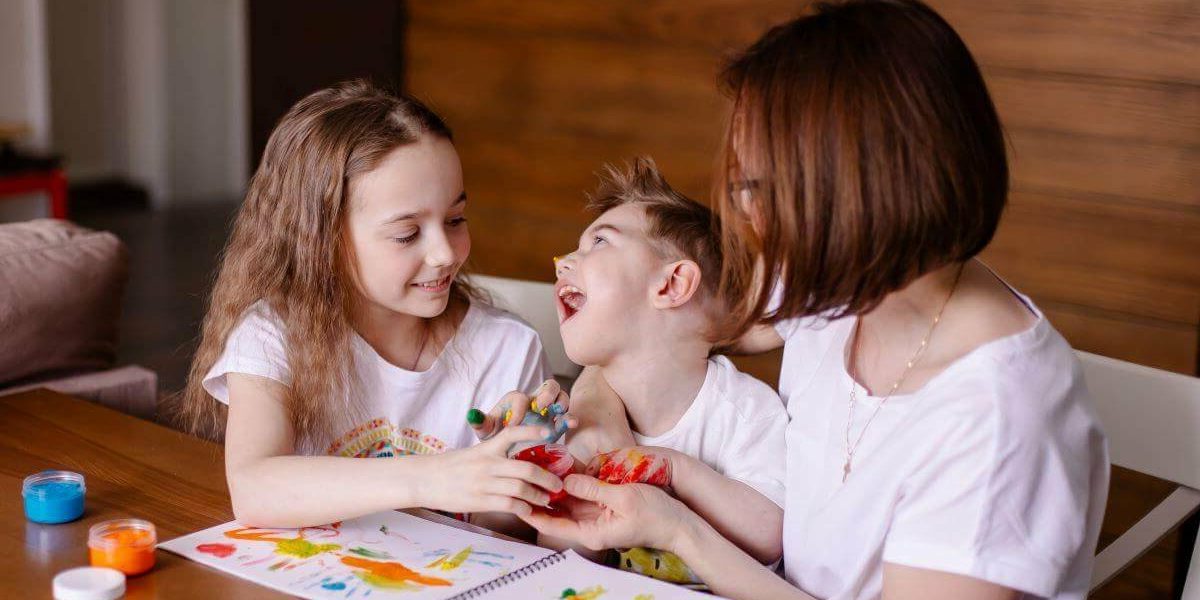Our partnership with Centre for Research in Intellectual and Developmental Disabilities (CIDD) at the University of Warwick focusses on family research that aims to better understand and improve family well-being.
In 2021 we gave a research grant to fund the development and initial research evaluation of the Positive Family Connections Programme. Positive Family Connections is an online programme to help support positive family relationships and wellbeing.
At the end of this phase of the project we take a look at what has been achieved.
Positive Family Connections Progress
Our relationships with those closest to us are key for the wellbeing of the whole family and that is no different when there is a disabled family member. Positive Family Connections, a positively-oriented, family-focused programme for families of children with developmental disabilities, aims to enhance positive relationships between family members.
A group of family carers worked with researchers to develop the themes, content, and format of Positive Family Connections. The programme was then piloted (tested on a small scale) with two groups of seven family carers and their feedback was used to improve the programme.
Positive Family Connections involves six, two-hour sessions which are designed to be delivered virtually to groups of around six to eight families, with up to two family carers attending from each family. Each group is run by two or three family carer facilitators.
The researchers then completed a feasibility randomised controlled trial of Positive Family Connections. A randomised controlled trial is where participants are randomly allocated to either take part in the programme, or to a control group who carry on with their usual supports.
Comparing the results between these groups helps researchers learn whether a new programme is helpful. A feasibility randomised controlled trial is a research study that aims to look at whether a full-scale trial would be possible in the future and how this could best be designed. The team also interviewed a number of participants and facilitators from the project to learn about their experiences of Positive Family Connections.
The research team successfully conducted a feasibility randomised controlled trial with 60 families. The trial found very positive findings for all of the feasibility questions they had (such as could they recruit families to take part, would they complete study questionnaires, and could the programme be delivered as intended). This suggests that a full-scale trial of Positive Family Connections would be feasible in the future.
The team also found preliminary evidence that the programme led to beneficial effects on family relationships and family carers’ psychological wellbeing. The interviews with participants and facilitators suggested that the programme was generally perceived positively and they thought that it had beneficial effects on their wellbeing and relationships. These positive effects appeared to be related to the peer-support from other family carers, and the positive approach of the programme leading to changes in perspective.
Lucy is one of the family carers who helped to deliver the programme:









